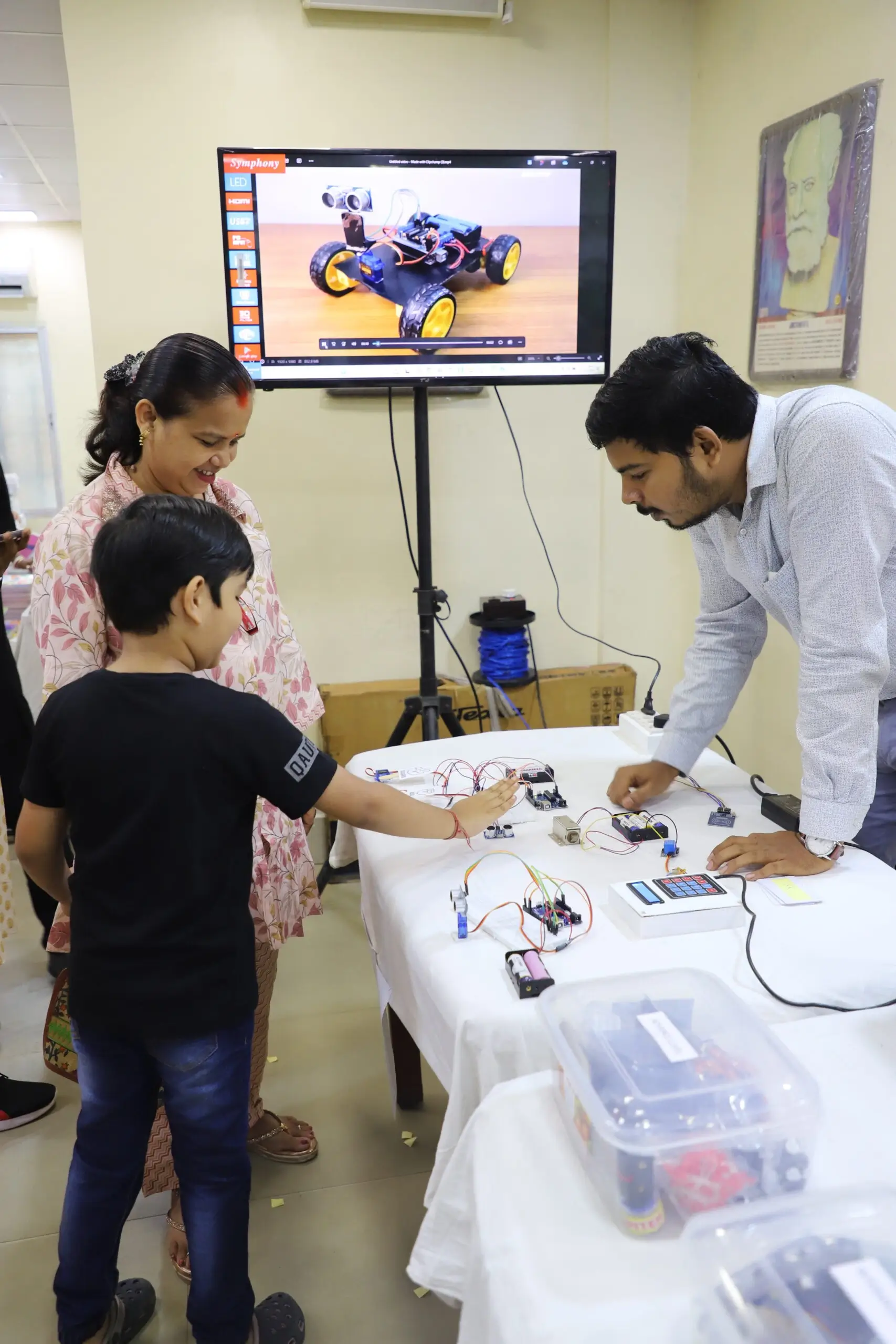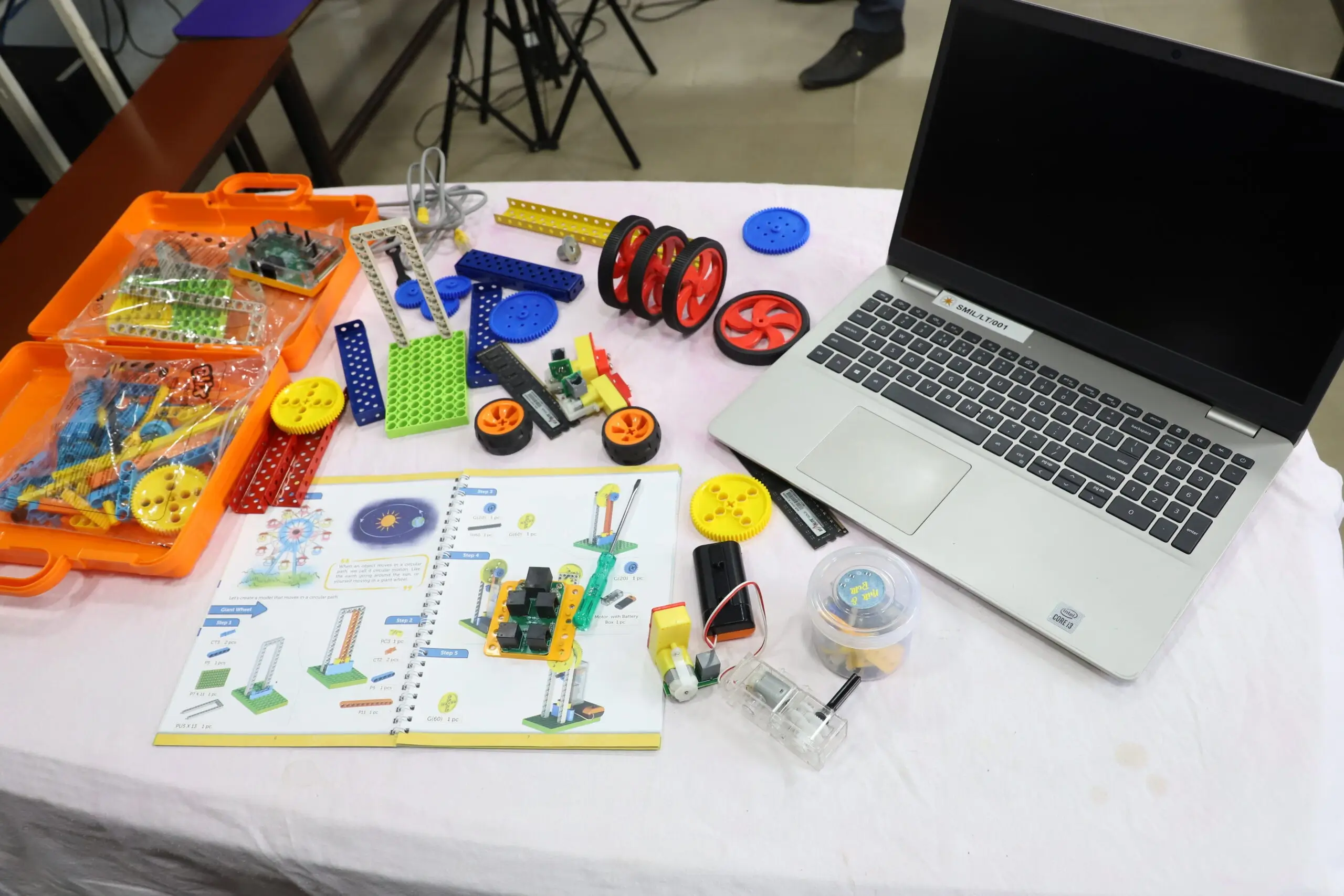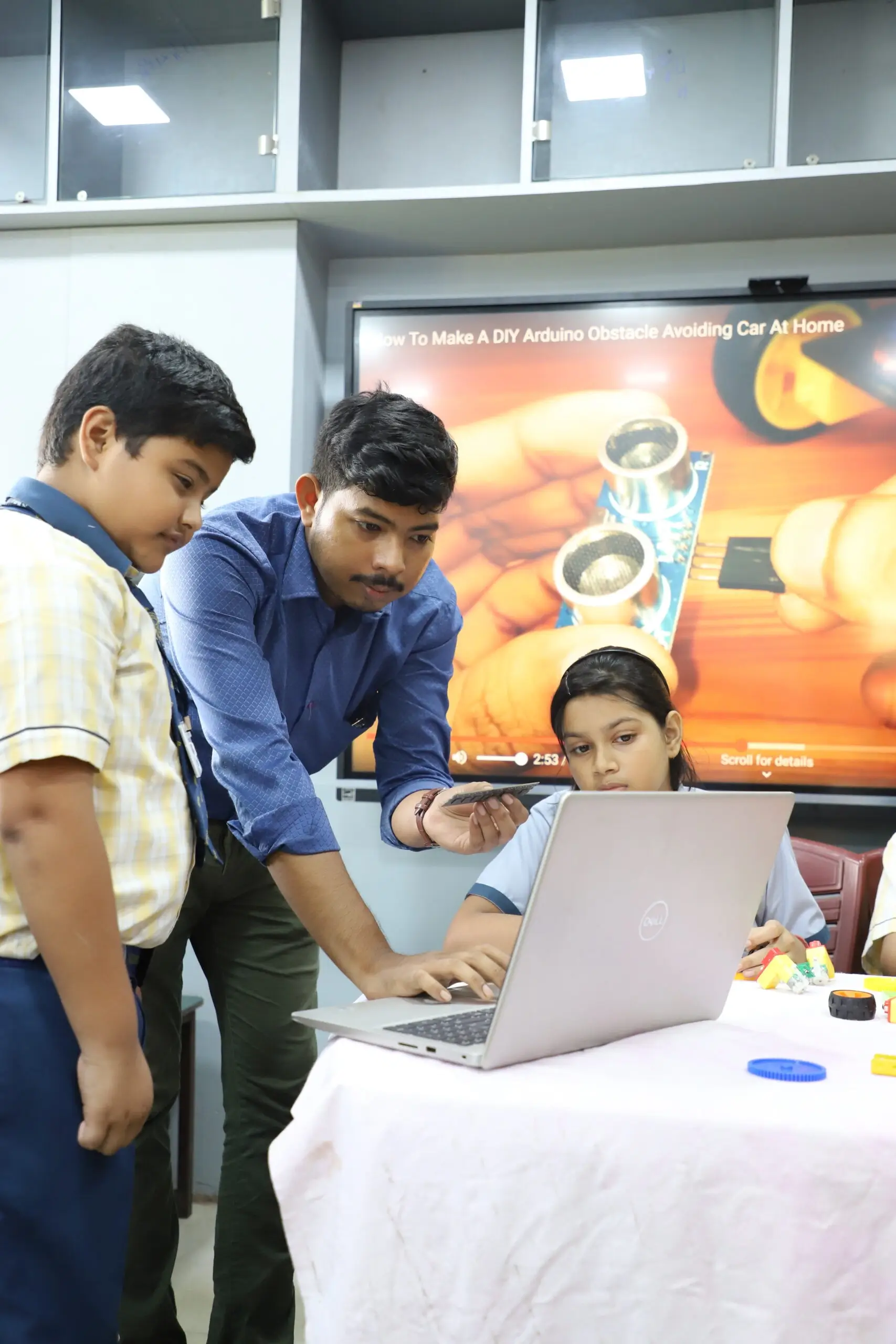Ground Plan
As a top CBSE schools from Howrah we regularly encourage new partnerships with government agencies, private players and community development organizations to expose students to newer experiences. .




SUDHIR MEMORIAL INSTITUTE LILUAH is one of the best cbse affiliated school in howrah. Founded as a Public School in 2011 in Liluah, Howrah; it is a private institution run by the S.N.R. Memorial Trust. We are one of the best school in Howrah for quality education for students and follow CBSE curriculum.
The school is following to the Central Board of Secondary Education (CBSE) curriculum, which is the largest educational board in the country. It is recognized by the Department of Education, Govt. of NCT Delhi and the Ministry of HRD, Govt. of India. Over 5000 schools in India, with over 80,000 students, are members of the Board.
We provide the required infrastructure to conduct the school in the line with the recommendation of CBSE school howrah. We are among the top school in Howrah. The entire facility is planned to make it comfortable for the children and a place for fun and learning. Classes are equipped with all the amenities essential for conducting modern updated education. Being one of the Best CBSE English medium school we have introduce novel academic program’s that helped students enter the nation’s premier engineering and medical colleges.
Education and social responsibilities is a key root of any social development. Our school is focusing on improving these scenarios through education, where a larger objective can be achieved. A concern about right education from top CBSE school in Howrah arise when parents efforts are falling then they hope for well academics and schools corporation must come forward in sharing responsibility with the parents in making the society educationally, and socially equal. “Sudhir Memorial Institute Liluah” has the key solution about this concern.
In almost 10 years of Journey, We produce 500+ toppers and uncountable Brilliant students. The numbers of the ratio are increasing in the scurry manner.
One of the most significant factors in our successful journey that made SMIL
as top CBSE English Medium School in Howrah is extra co-curricular activities, Social responsibilities, co-scholastic activities. These important events and activities on a daily basis made each and every student a well responsible towards its Social, Cultural and Educational values.







SUDHIR MEMORIAL INSTITUTE liluah announces its Admission open for the session 2025-26, providing opportunity to the Students in Howrah for studying in one of the best CBSE School . Get CBSE School Admission in Howrah and connect with the most unique smart classrooms. We at SMIL believe that Academic excellence is desirable but teaching good values is the essence of education. We not only take the task of raising career conscious students but also making them socially responsible and global citizens. We aim to impart holistic education essential for complete growth and development . We also emphasize on co curricular and Extracurricular activities as only formal education is not enough in this present world.
The Admission is only open for limited number of seats as per availability. The selection will be purely merit based and will be done on the basis of written test followed by Personal Interview.
We announce the admission open for the Session 2025-26, from September 2024. The admission is open from Toddlers to Class VIII. The process of admission has been explained below. Parents/ Guardian are requested to follow the given procedure.
Admission in Toddlers to Class-VIII is only for the numbers of seats available and will be strictly based on the merit of the child. Admission will remain open and Forms will be issued for a limited period of time.
“Sudhir Memorial Institute Liluah” has some criteria for admission. To take admission in cbse school in howrah please click on
Read More




“Knowledge will forever govern ignorance, and people who mean to be their own governors must aim themselves with power which knowledge gives.”
It is rightly said that the whole purpose of the education is to teach the child to think and notwhat to think. We at Sudhir Memorial Institute Liluah, the best school in Howrah believe that this is the fundamental truth and it has always been the endeavour of the school to instil right values in its students so that they can develop a holistic personality and are ready to take challenges for their future world.
We teach them to march ahead with positive attitude, skill, confidence, sensitivity and responsibility. The unmatched and impressive heights of glory at which our school stands today bears testimony to the fact the school is fiercely committed to pursue excellence in all the fields, be it in academic, sports, ethics or aesthetics.
In this contemporary world where cut throat competition has become a part and parcel of life, it is of supreme importance that we teach our children to be competent enough to stand tall amongst others with their extraordinary skills and come out victorious from the realms of this challenging labyrinth. We as the top cbse school in howrah provide an environment where a child can play and learn together freely with love, dignity and acceptance.
Know MoreThere are many variations of passages of Lorem Ipsum available, but the majority have suffered alteration in some form, by injected humour, or randomised words which don't look even slightly believable
Know More






There are millions of reasons to choose Sudhir Memorial Institute Liluah or SMIL. Education plays a significant role in building a child’s future. SMIL is different from others because it is prestigious school in howrah which provides students lots of opportunities. The school is known for its academic reputation and certified for its academic record. It is the school which determined to lend this facility to encourage flexible learning techniques with their curriculum.
We are also different from other schools because we provide experimental experience or practical experience in our syllabus. In addition, parents are always eager to enrol their child into the system where the schools offer a variety of activities and are not just concerned with academics. Such factors to bring adequate exposure to languages and offers opportunities for the child to learn in many ways makes the CBSE schools the best among all.
Recognised by the Indian government, the cbse board school in howrah are reputable in delivering quality education at a minimal fee. With a dynamic learning environment, our school improves the quality of teaching at a cost effective budget. The syllabus is designed by the NCERT which encourages activity based learning and pushes the kids to be independent.











Feedback for English workshop The english workshop is very helpful, exciting, and enthusiastic for all children but the concept of cursive writing and comprehension is very much difficult for some children as per my opinion. THANK YOU

Class: I
The workshop was very knowledgeable for the students. they came to know about many things , they learned about cursive writing, passages. I hope very soon this type of workshop will be held again in future. so that students will come across with many new things. thank you teachers for all your effort

Class: III
The educations along with other activities carried on by the institute are good and well advanced as required in modern era. It presumes that the same will be more advanced so that the child gets better participation in certain activities

Class: VII

Stay informed with the most recent updates, announcements, and stories from our blog. From insightful articles to trending topics, we bring you everything you need to stay ahead and inspired.
Know MoreFull form of CBSE is “ CENTRAL BOARD OF SECONDARY EDUCATION”
Established in 1929 follows NCERT curriculum. It is Nationally present with more than 27000 school and has 240 plus schools in 28 foreign countries. Its parent organisation is Ministry of Education Govt of India.
In view to improve standards of school education a comprehensive school evaluation system has been developed as the framework of “ School Quality Assessment and Assurance ( SQAA)
The main objective of CBSE curriculum is to provide the most update education. The syllabus is designed as per the Standards of Engineering and Medical Examinations at national level the IIT-JEE and NEET.
To take admission in CBSE schools in Howrah, some of the documents needed are – passport size colour photographs, Transfer Certificate, Mark sheet, proof of date of birth.
One of the first steps to successful studying is getting yourself habituated with structured study. Set a specific study time. Avoid the lastminute cramming and ensure to climb the peak. Outline your daily study goals and assign time for each subject.
One of the most helpful process to churn up the retention ability is the Visual Representation. Utilization of various tools like mind maps, flowcharts, and diagrams to visually represent information. Mark the points with highlighter to get more visual engagement.
During classes or while reading books, please pay attention to the important details, keywords, and explanations. Summarize those learnings in your own words. This is making it easier to grasp and remember later.
Don't only focus on passive reading or writing. Engage yourself in active learning techniques. Participate in group studies and use interactive educational resources. Learning with peers reinforce the understanding and helping in identifying the areas of development.
The CBSE curriculum can often give you vast amounts of information. The difficult chapters may break into manageable portions with CBSE Curriculum. It only focuses on the main ideas and then get you involved deeper into each subtopic. Organize your study materials with color-coded notes, flashcards, or digital tools with CBSE Curriculum.
Use technology to support your studies. Use educational apps, videos and other trusted resources to reinforce concepts. Digital flashcards and online quizzes can make revision more interactive and enjoyable.
Track your academic progress regularly to stay motivated and identify areas for improvement. Set a realistic goals and evaluate your performance after completing each session. Don't forget to celebrate your achievements, no matter how small it is. It'll always boost your confidence and maintain your enthusiasm for learning.
Fill in the details we will get back you

Fill in the details we will get back you
